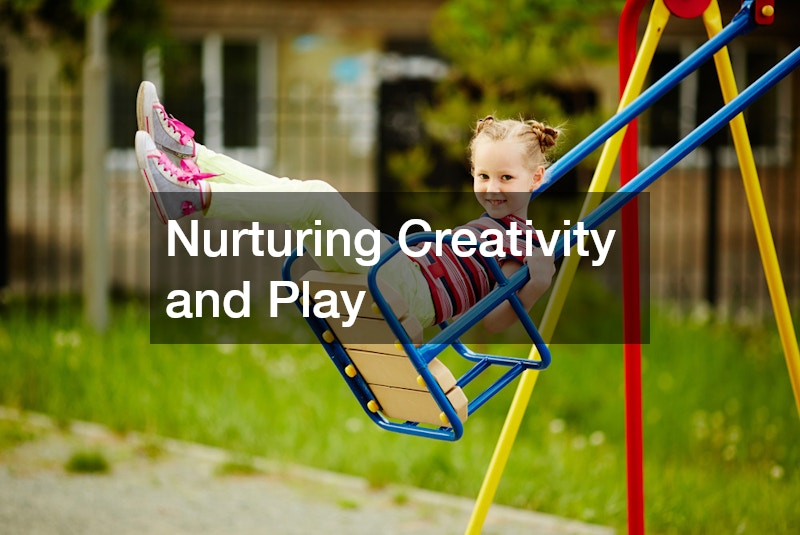Introduction
Parenting is an extraordinary journey filled with joy, challenges, and responsibilities. Among the many facets of raising children, education and healthcare stand out as two foundational pillars that can significantly influence a child’s development and overall well-being. Understanding the keys to successful parenting can pave the way for effective child-rearing. This article will explore various aspects of successful parenting, focusing on the essential roles played by educational institutions, healthcare providers, and specialized services in ensuring children grow up healthy, happy, and prepared for life’s challenges.
Education begins long before a child steps into a kindergarten classroom. From early childhood education programs to support systems like speech therapy and counseling services, each plays a critical role in laying the groundwork for lifelong learning. Likewise, healthcare cannot be understated; regular check-ups with pediatricians, access to dental health care, and vision services contribute to a child’s physical health, which is integral to their ability to learn and thrive.
As we delve deeper into the keys to successful parenting, we will examine the significance of these components and how they interconnect to foster a nurturing environment. By equipping ourselves with knowledge and resources, parents can make informed decisions that support their children’s growth. From engaging with specialists like pediatric occupational and physical therapists to ensuring proper health services are in place, the journey of parenting is as much about building a community of support as it is about individual actions.
Supporting Development through Occupational Therapy

One of the vital keys to successful parenting is understanding the role of pediatric occupational therapists. These professionals specialize in helping children develop the skills necessary for daily living and learning. Their approach often involves assessing a child’s abilities and tailoring interventions to address specific challenges, whether they stem from physical, sensory, or developmental issues.
Integrating occupational therapy into parenting can be a key to successful outcomes. For instance, if a child struggles with fine motor skills—essential for writing or self-care tasks—occupational therapists can provide strategies and exercises to improve these abilities. By actively participating in therapy sessions and reinforcing the skills at home, parents can create a supportive environment that fosters growth.
Additionally, understanding the importance of sensory processing is crucial. Children who are sensitive to sensory input may struggle in typical environments, affecting their ability to focus and learn. Occupational therapists can help parents develop strategies to accommodate these sensitivities, whether through modifications at home or communication with teachers in early education settings. This collaborative effort is essential for nurturing a child’s confidence and independence, further emphasizing the keys to successful parenting.
Enhancing Physical Abilities through Therapy
Another important key to successful parenting is recognizing the value of pediatric physical therapy rehab. Pediatric physical therapists play a pivotal role in a child’s development, particularly in enhancing physical capabilities. They work with children who may have mobility issues, balance difficulties, or developmental delays, ensuring that each child reaches their physical milestones. Engaging with a pediatric physical therapist can help parents understand their child’s unique needs and the best ways to support their growth.
For example, if a child has difficulty running or climbing, a physical therapist can design a personalized program to improve strength, coordination, and balance. Parents can actively participate in these activities, creating a fun and supportive atmosphere that encourages physical exploration. Regular check-ins with the therapist can also help track progress and make necessary adjustments, reinforcing the keys to successful parenting.
Beyond physical growth, therapy can also enhance social skills, particularly when children engage in group activities that require collaboration and communication. By facilitating interactions with peers in safe environments, parents can encourage social development while also ensuring safety during play—another aspect that ties back to the keys to successful parenting.
The Role of Pediatricians in Child Development
The role of a pediatrician cannot be overstated in the realm of successful parenting. Pediatricians serve as the first line of defense in ensuring a child’s health. Regular check-ups, vaccinations, and health screenings are essential components of preventive healthcare that can catch potential issues early. Parents should view pediatricians as partners in their parenting journey.
Open communication about any concerns, whether related to physical health or emotional well-being, allows pediatricians to provide tailored advice and interventions. Moreover, pediatricians can guide parents on topics such as nutrition, sleep habits, and behavioral concerns, equipping them with the knowledge needed to foster a healthy lifestyle for their children. This collaboration is a key to successful parenting.
Additionally, pediatricians often have networks of specialists, including pediatric occupational and physical therapists, who can provide further support if needed. By utilizing these resources, parents can address any challenges proactively and ensure a comprehensive approach to their child’s healthcare, reinforcing the overall keys to successful parenting.
Prioritizing Dental Health

Another key to successful parenting involves emphasizing the importance of childrens dental health care. Establishing good dental habits early on is essential for lifelong oral health. Regular visits to dental care providers help parents ensure that their children receive necessary treatments and education about proper dental hygiene.
Parents should encourage routines that include brushing and flossing while also being mindful of dietary choices that affect dental health. Introducing children to dental care professionals early can alleviate any fear associated with dental visits, fostering a positive attitude towards maintaining their oral health.
Furthermore, pediatric dentists often work closely with parents to educate them about the importance of early intervention in dental issues, such as cavities or alignment concerns. This proactive approach can lead to better health outcomes and prevent more severe complications down the line, further illustrating the keys to successful parenting.
Supporting Communication Skills
Effective communication is another fundamental key to successful parenting. For children who face challenges in speech and language, engaging with speech therapy can be crucial. Pediatric speech therapists assess and treat various communication disorders, providing children with the tools they need to express themselves effectively.
Parents can play a significant role in this process by creating an environment rich in language. Reading together, engaging in conversations, and playing interactive games can enhance a child’s speech and language skills. When parents are actively involved in their child’s speech therapy, it reinforces learning and makes the process more enjoyable.
Speech therapy not only aids in verbal communication but also addresses social skills. Children learn how to navigate conversations, understand non-verbal cues, and build relationships with their peers. These skills are essential as children transition into social settings, where effective communication is vital, demonstrating yet another aspect of the keys to successful parenting.
Addressing Emotional Well-Being
Mental and emotional health is an often overlooked aspect of successful parenting. Counseling services provide essential support for children facing emotional challenges, whether due to family issues, school pressures, or other stressors. Accessing these services can empower parents to address concerns proactively and create a supportive environment.
Counselors can equip children with coping strategies and problem-solving skills, fostering resilience as they navigate life’s ups and downs. Parents should feel encouraged to seek counseling not only for their children but also for themselves, as parenting can be overwhelming. Building a network of support can make a substantial difference in managing stress and fostering a healthy family dynamic—an integral part of the keys to successful parenting.
Moreover, open discussions about mental health within the family can destigmatize the need for help, allowing children to feel more comfortable expressing their feelings and seeking assistance when needed. By prioritizing emotional well-being, parents set the stage for their children to thrive both personally and academically, reinforcing the overall keys to successful parenting.
Importance of Vision Care

Vision plays a crucial role in a child’s learning and development. Regular visits to eye care services are essential to identify any vision problems that could hinder academic success. Pediatric optometrists or ophthalmologists can conduct thorough eye exams and provide guidance on eye health, ensuring that children have the best possible foundation for learning.
Parents can be proactive by educating themselves about the signs of vision issues, such as difficulty focusing on tasks or frequent squinting. Early detection and intervention can significantly impact a child’s ability to learn, participate in sports, and engage socially.
Furthermore, ensuring that children have access to proper eyewear, if needed, can enhance their confidence and performance in various activities. By prioritizing eye care, parents are investing in their children’s overall development and success, which aligns with the keys to successful parenting.
Preparing for Kindergarten
The transition to kindergarten schools is a significant milestone in a child’s life. Choosing the right school can set the tone for their educational journey. Successful parenting involves researching and selecting an environment that aligns with a child’s learning style and emotional needs.
Parents should consider factors such as class size, teacher qualifications, curriculum, and extracurricular activities when selecting a kindergarten. Engaging in open conversations with educators can help parents understand how their child can thrive in that setting.
Moreover, fostering a love for learning at home can complement the educational experiences children receive at school. Parents can create engaging learning opportunities through games, books, and hands-on activities that nurture curiosity and creativity, embodying the keys to successful parenting.
Creating a Supportive Community
An often-overlooked key to successful parenting is the creation of a supportive community. Engaging with other parents, caregivers, and educators can provide valuable resources and shared experiences that enhance a child’s development. Joining local parenting groups or participating in community activities can foster connections that offer emotional support and practical advice.
Additionally, community resources such as libraries, parks, and recreation centers provide valuable opportunities for socialization and learning. These environments can enhance children’s social skills and offer parents a network of support as they navigate the challenges of raising children. The keys to successful parenting include building a robust support system that encompasses both family and community.
The Importance of Routine
Another crucial key to successful parenting is establishing a consistent routine. Children thrive on structure and predictability, which can provide them with a sense of security. Routines can encompass various aspects of daily life, from mealtimes to bedtime, homework, and family activities.
By setting clear expectations and consistent schedules, parents can help children develop a sense of responsibility and time management. Routines can also make transitions smoother, whether moving from playtime to homework or preparing for bedtime. This predictability aligns with the keys to successful parenting, as it fosters stability and reassurance in a child’s life.
Nurturing Creativity and Play

In addition to the structured aspects of parenting, encouraging creativity and play is essential for balanced development. Imaginative play allows children to explore their feelings, understand social dynamics, and develop problem-solving skills. By providing opportunities for unstructured play, parents can foster creativity and innovation.
Engaging in arts and crafts, music, and outdoor activities not only enriches a child’s experience but also allows for emotional expression. Parents can participate in these activities, reinforcing bonds and creating lasting memories. Supporting a child’s creative endeavors is yet another key to successful parenting, as it nurtures both cognitive and emotional growth. If you’re thinking about an at-home playground, consider a playground surfacing company to help keep your child safe at play.
Conclusion
Successful parenting is a multifaceted endeavor that requires attention to both education and healthcare. By understanding the keys to successful parenting—such as the roles played by professionals like pediatric occupational and physical therapists, pediatricians, and speech therapists—parents can better support their children’s growth and development.
Establishing good habits in areas such as dental health, emotional well-being, and vision care is equally important. Each of these components interconnects to form a comprehensive approach to raising healthy, well-adjusted children.
Ultimately, the journey of parenting is about creating a supportive environment that encourages exploration, learning, and resilience. By actively engaging with available resources and fostering open communication, parents can lay a strong foundation for their children’s future, equipping them with the skills and confidence they need to navigate life’s challenges successfully. In doing so, they embody the true essence of the keys to successful parenting. By recognizing the value of community, routine, and emotional support, parents can further enrich their children’s experiences, ensuring they grow into well-rounded individuals prepared to face the world.
In summary, successful parenting is a holistic approach that intertwines health, education, emotional support, and community involvement. Each key plays a vital role in nurturing a child’s potential, ultimately leading to their success and happiness in life.

